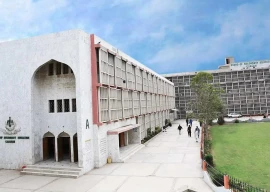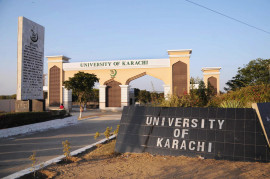Searching for a place where free market economic policies stand within the Islamic ideology, author Ali Salman in his book does a historical analysis of pre and post-colonial Pakistan. His study “State Intervention in commodity markets: Discord between economic freedom and social justice in Islam” was launched on Monday at an event held by the Economic Freedom Network Pakistan (EFNP).
Salman’s monograph concludes that Islamic jurisprudence is divided over the issue of price controls, though a consensus exists that in principle, price control is forbidden by Shariah law. “According to a Hadith of Prophet Muhammad (pbuh), price control by the state is forbidden, as prices are determined by God, what we can call the natural laws of supply and demand in a free market economy,” said Salman.
Salman quoted jurist Ibne Qudamah, who maintained that price control itself can lead to hoarding and price hikes. However, the author notes that in the case of a cheating or coercive economy, state intervention may bring solace for an economy, including at times of war, famine and natural disaster.
Trade Policy Director General Safdar Sohail commended Salman’s research and analysis, saying, “In my 28 years of dealing with trade, this is the first time I’ve heard concepts of Shariah and trade coming together.”
Sohail did his own analysis of the monograph and said there is worth in weighing the potential of this concept as a social science discipline. “We need to delve back in to our history before colonialism to qualify the stance of some historians that India was on its way to become a modern state before becoming a British colony,” said Sohail.
He noted that in his personal view, economics has less to do with religion and more with context, which needs to be taken in to account when assessing the merit of this prospective discipline. However, the significance of religion in economics cannot be discounted either as stated in Max Weber’s “The Protestant ethic and the spirit of capitalism” which attributes the rise and evolution of capitalism to Calvinism (a Protestant school of thought).
Referring to trade, Salman commented that free trade between enemy tribes was rampant during the Prophet’s time. “However, countries in modern times put severe restrictions on trade between countries that aren’t even ‘enemies’. This is detrimental to countries and world trade,” added Salman.
JUI-F Senator Ghulam Ali stated that the government need not interfere in price control but they need to actively provide rations and aid to the less privileged segments so accumulation of wealth can move from the few to the many.
Published in The Express Tribune, August 15th, 2012.
COMMENTS (3)
Comments are moderated and generally will be posted if they are on-topic and not abusive.
For more information, please see our Comments FAQ





1732947071-0/BeFunk_§_]__§-(4)1732947071-0.jpg)











I'm a little sceptical. The author is a Libertarian, which is obviously colouring his views. Islam does not prohibit protectionism or trade barriers to protect infant and developing industries from well-established markets producing at economies of scale, which were also protected before they developed into competitive industries.
Riddiculous! Like every other religion, Islam gives a lot of space to Capitalism. I'm sure this book is written through deductive reasoning keeping in mind to prove Islamic ideology as best to please all; the Islamic as well as the capitalist forces...
Very interesting. I didn't know that Islam provides specific guidance with regards to price controls and trade openness. Thanks for sharing.